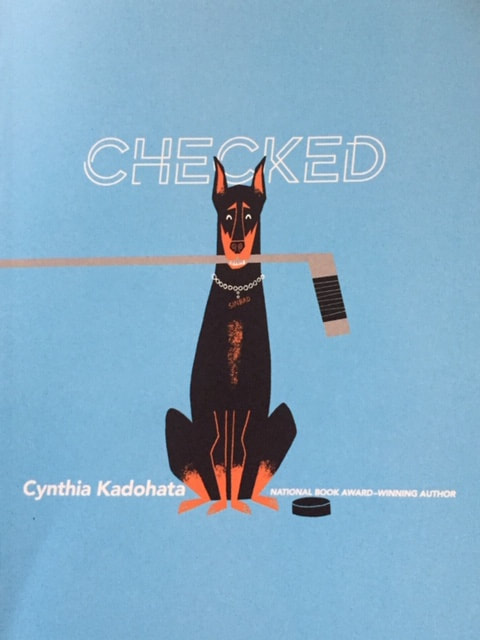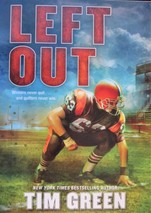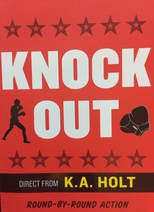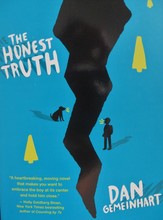Checked
|
|
Book Summary:
Conor is a young elite ice hockey player who hopes to make the NHL someday. He and his father spend most of their time developing his hockey skills and fitness. When he's not training, Conor spends time with his beloved Sinbad, but when Sinbad is diagnosed with cancer and has to have expensive treatments, Conor has to find a way to pay for that and his hockey lessons and equipment. Book Review: There are a lot of pieces in this book that are interesting, but it doesn't tie together very well for me. I don't mind the extensive detail about ice hockey skills and training - I think it's interesting to read about Conor's drive and the level of competition and effort required to play at that level. It's also easy to love Sinbad and understand Conor's devotion to him, and his worry through the medical treatments. Here are some other components and issues in the story: Conor's father is a police officer, a job that wears him down and requires him to take threats and abuse. Conor's mother died and Conor's father remarried soon after, causing Conor to become estranged from one set of grandparents. That marriage broke up and Conor thinks his hockey is to blame, but knows the stepmother didn't consier him a "real kid," and he remembers them arguing a lot. Conor lives in California and they have to pick up and move because of wildfires. Conor's not very interested in school, but he has a good attitude, but he waits till the last minute, but he tries hard sometimes, but he never gets good grades and has a hard time reading and remembering the playbook (no named diagnosis). Some kids don't have a lot of money compared to other hockey players on the team. Some hockey parents put too much pressure on their kids, or blame their coaches for everything. There's a neighbor who used to have a pet chimpanzee who now buys a lot of blue tarp. Conor plays video games but doesn't really find them that interesting. And so on - there are so many components here, and real lives have that - but the narrative is a collection of loose threads, rather than an intricate web with a clearly defined pattern. The plot generally consists of scenes with Conor training for hockey, talking to his father, and hanging out with or worrying about his dog. In between, there are thoughts offered about various topics that don't move the story forward: "I don't eat food from McDonald's because there's a rumor at school that their hamburgers never spoil." "I don't know anything about physics, but is it true that time passes no matter what?" "All that stuff literally everyone tells parents about GPA being so important is kind of offensive to kids like me, who just can't get good grades even if we try." "Grandpa's supercool about some stuff, like alternative health and nutrition, but he's kind of in the Stone Age about other stuff, like animals." The piece that doesn't work for me is Conor's voice; it's sort of all over the place and doesn't really sound like a kid. He carries a lot of adult worries, but he uses childish language in short sentences to convey his thinking, and there's slang, but it's inconsistent instead of specific to a particular time period. Conor's viewpoints are also less believable because some of the judgments he offers are things adults are more likely to focus on, like wondering why an elderly neighbor's niece doesn't come over to help him clean up, or explaining people's bias against cops. The most authentic parts of this book for me are the hockey scenes, and devoted players and fans - or competitive people in general - will likely find these parts interesting. "He wants to play hockey! I repeat - ask him." |
If you like this book, you may also like . . .











